1. Flow
1.1. Flow Order
1.1.1. Invite friends
1.1.2. Bait
1.1.3. Landing Page
1.1.4. Facebook Login
1.1.5. Give Feedback Game
1.1.6. Receive Feedback
1.1.7. Share
1.2. Flow Engagement
2. Sharing
2.1. Share with results vs. without results
2.2. Overcome resistance to sharing EQ
3. Architecture
3.1. Nouns
3.1.1. Survey?
3.1.2. Question
3.1.3. Answer
3.1.4. User
3.1.5. Friend
3.1.6. Score
3.2. Verbs
3.2.1. Rate
3.2.2. Request
3.2.3. Invite
3.2.4. Search
3.2.5. Manage
3.3. States
3.3.1. User is invited, but without feedback waiting
3.3.2. User is invited, with feedback waiting
3.3.3. User enters cold, without feedback waiting
3.3.4. User enters cold, with feedback waiting
4. Brand
4.1. Promise
4.1.1. Improve performance in life
4.2. Approach
4.2.1. Social mirror - anonymous feedback from friends and colleagues
4.3. Offering
4.3.1. Viral app that measures and reveals my Emotional Intelligence
4.4. Audience
4.4.1. People who care about their performance
5. Feedback
5.1. Alex
5.1.1. Monty Concept
5.1.1.1. Interaction style is confusing with faces
5.1.1.2. Inclined to skew data to the positive
5.1.1.3. First screen should have told you "give us these ratings, it will all be kept anonymous."
5.1.1.4. Instructions for interaction style once logged in (*moving 5 faces on the line).
5.1.1.5. Feels awkward "ranking" his friends against each other. Would rather not pit each of his friends against each other.
5.1.1.6. "Ask your friends for feedback."
5.1.1.7. Wonders how it is anonymous / Unclear
5.1.1.8. Wondering where his results are - he is definitely curious
5.1.1.9. If button said "See your results" on the screen where you added emails / SMS, would be very likely to click.
5.1.1.10. Was not clear that the app was supposed to be anonymous and that needed mulitple people's feedback to keep anonymity.
5.1.1.11. Would feel more comfortable with email than SMS, i.e. would prefer the option.
5.1.1.12. Looking at results - confused at the scale. He's curious who said what.
5.1.1.13. He would prefer it to not be anonymous. Might be likely to skew a little bit.
5.1.1.14. Based on feedback, he would not do anything immediatately, but it would plant the seed and change context and prompt self-inquiry.
5.1.1.15. Would love access to links/books to improve empathy.
5.1.1.16. Last - ask all friends, 2nd to last, ask more friends.
5.1.2. Bear Concept
5.1.2.1. Interaction style is clear.
5.1.2.2. Chose "get more feedback."
5.1.2.3. Alex wants to crowdsource why he is not loyal
5.1.2.4. Prefers this concept strongly
5.1.2.5. More of an archetype fit
5.1.2.6. Way more clear
5.1.2.7. Appeals more to him wanting to focus on himself
5.1.2.8. Slider is way more clear
6. Objective
6.1. Goal for Sunday: to design a first user experience that proves we can achieve virality - a concept we can build and launch for beta testing in 30 days followed by a public launch in early September showing K>1.0
7. User Value
7.1. Feeling of helping a friend
7.2. Learn about themselves
7.3. Learn what their friends think of them
7.4. See how they rank against others
7.5. Feeling of contributing to a more open and trusting society
7.6. Social credibility
7.7. Confirmation/Validation of social standing
7.8. Confirmation of strengths
7.9. Education about how to improve oneself
8. Archetypes
9. Invitations
9.1. General Invitation vs. Feedback Request
9.1.1. How do we best characterize invites - e.g., “ask friends for feedback”?
9.2. Number of Invites required
9.3. Email or SMS or Facebook
9.4. Import addresses?
10. Emotional Intelligence
10.1. Self-Awareness
10.2. Self-Regulation
10.3. Motivation
10.4. Empathy
10.5. Social Skill
11. Sign-up
11.1. Facebook + other Auth Services
11.2. Facebook vs. other Auth Services
12. Data Collection
12.1. Interaction Style
12.1.1. Slider, buckets, radio buttons, drag a face, etc.
12.2. Continuous or discrete
12.3. 1 at a time / multiple at once
13. Entry Points
13.1. Email
13.1.1. Request for Feedback
13.1.2. General Invitation
13.2. Facebook Wallpost
13.2.1. User sharing EQ
13.2.2. General Promotion
